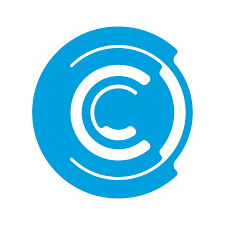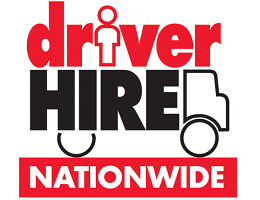
Has the New Year brought you a sense of a “fresh start”- meaning you can find some great reasons not to do something you were asked to well before Christmas…?
And as we get into January proper, can you find great evidence that your resolutions don’t need to be done every day after all…?
Are your excuses ready, as we speak, just in case anyone remembers they are still waiting for something from you? Or someone you were talking to on New Year’s Eve asks how the diet is going?
Being able to convince yourself you were right to ditch the things you were finding hard or boring is normal. It is why any personal or organisational change is really easy to talk about, but near impossible to do. Our brains are wired to find really good evidence that what we don’t want to change, is not that important after all. Our brains want to go and find something more interesting to do instead – something that fits with what we know we like and what we already believe. It’s scientific name is cognitive bias.
Most of us will have worked in a team that had “initiative-fever” at some time in our lives – a team that moves from one new idea to the next…and the next…and the next. We talk about wanting to work in a fast paced environment with lots of change. And that can be a great thing. But when organisational changes are like a series of fireworks that starts with a bang of colour but drift off and get forgotten about, they are usually just a waste of time, money and energy.
Leading change at the start when everyone is enthusiastic is an attractive proposition. But leading slower burn, hard change is properly tough. It’s no wonder that you can find plenty of people who will be really enthusiastic about having some new objectives to get their teeth into instead of making sure the stuff from last year got done as well as it could…
I love Janet Malcom’s quote – “We go through life mishearing and mis-seeing and misunderstanding so that the stories we tell ourselves will add up.” Janet Malcolm is journalist, not a psychologist or a neuroscientist – hence why she can sum up the concept of cognitive bias in a single sentence and not a 400 page book….
We have a whole load of cognitive biases at work every day which get in the way of changing anything. I usually de-mystify them by calling them brain tricks or glitches. Here’s the major glitch in a nutshell. Our brains are fantastic at telling us what we want to hear. We find it hard to see any evidence that we are wrong. Our brains go to great lengths to not to hear truths we would rather avoid.
This is why even if we are initially up for changing something, we are pre-programmed to give it up – even if it is doing us a lot of good.
“New” things haven’t had the chance to go wrong yet. Or become boring or difficult. Having lots of enthusiam for a New Year’s resolution on the 1st Jan is easy. But the same things are hard to be excited about on the 20th. It’s not that you are a bad person with low impulse control. It is simply human nature than when a “new” thing starts to feel like hard work, our brains are brilliant at finding really great reasons to give up.
Imagine you could time-travel and see into the future. What would you do if you found out that something really time consuming, boring and difficult would make a massive difference to your business? Or that something that personally you find a slog, would turn out to be pivotal to your happiness?
You could of course still choose not to do the difficult/boring thing. But the important thing is you would have a choice. The depressing news is that unless you are aware of the existence of cognitive bias, your brain won’t make it obvious to you that you have a choice. Instead your wiring will provide you with compelling (and usually very logical reasons) why you can discard the boring/difficult thing with no real regrets.
So everyone knows its risky not to exercise enough or to over drink/eat/smoke. But your brain can find a really good reason that having a few beers/ 2 cigarettes over lunch/1 chocolate/not exercising today, is OK.
Well maybe it will be and maybe it won’t. But I always find one example sobering (quite literally !). Two Harvard professors who have over 25 years experience in dealing with workplace change quote a study that when doctors tell heart patients they will die if they don’t change their habits, only 1 in 7 patients will be able to actually change their habits (rather than just making a resolution to change them). You read that right. 6 out of 7 patients die rather than change.
This brings home hard just how difficult it is to change something that you don’t want to. Even when it is a matter of life and death, you can and will convince yourself with all sorts of logical reasons and “hard facts” that it is OK to carry on as you are.
Changing something at work is very rarely a matter of life or death. But is it realistic to tell people to change something, train them to do it and then expect it just to happen? We are surprised that even with the ultimate threat of someone losing their job that change seems elusive for some. But why should we be? We all have the same brain at work as we do at home. When 6 out of 7 heart patients die rather than change lifestyle habits, why would it surprise us if 6 out of 7 people found a good reason at work to avoid something they didn’t want to do?
Knowing about cognitive biases and re-framing them as “tricks” or “brain-glitches” can give you a bit more power to think beyond natural limitations when it comes to change. Thinking about why you are thinking what you are thinking – and challenging others to do the same – gives you clarity and choice. And helps with the determination to see it through.
So before you wipe your 2016 slate clean and start afresh, just make sure that some of the common cognitive biases aren’t getting in your way of making 2017 your best yet.
Cognitive Dissonance – “Well that [action from 2016] wasn’t ever going to fix the problem because……”
Stop. You will be able to find 100’s of reasons that you were right…even if you are dead wrong…This is because your brain makes sense of complexity by ignoring things that don’t fit with what you already believe to be true. It’s why so few people change their political beliefs over time. Or why when you think someone is a really great performer, they have to virtually commit murder for you to notice their performance is declining…or vice versa.
Status Quo Bias – “On reflection, it wasn’t really that broken so I think we should leave it alone after all…”
Really? When you have slept a few times since the “burning platform” caught fire it can be really tempting to leave things alone. Is the status quo really the best you can do? Or is your brain not wanting to do something that it knows is going to be difficult…
Current Moment Bias – “I’ll just get January out of the way and then I’ll get on with that…”
Hang on. Didn’t you say that with the word “Christmas” in the place of “January” just a few weeks ago? Your brains loves good intentions…but is also very good at convincing you that you don’t need to do it “today“. When you find yourself saying that you will do something tomorrow, beware. Your brain knows that tomorrow never comes…
Post Rationalisation – “It was fine to not have got round to that because…I did x, y and z instead…No one will notice…It will take ages…I was really, really too busy…”
Be blunt with yourself. And get some feedback from someone who will be blunt with you too. If it was really, really fine then OK. Don’t waste your time and bin it. But beware your brain is fantastic at making a decision feel OK after you have made it. Challenge yourself. Was it OK? Or has your brain invented reasons that it is OK, when in retrospect, it would be good to just crack on and get it done.
Bandwagon Effect – “Everyone else didn’t do it so it must be the right thing to ignore it and move on…”
Challenge yourself. Your brain is really attracted to being in a “tribe”, to belonging. This means that we often fall in line with other people that we like and admire. We might want to rebel, but usually we want other people to join our “new tribe” when we do. What evidence can you find that you could all be wrong?
Concluding with New Year’s resolutions, I’m wondering if there are actually 2 bandwagon’s going on – The “Lose 2 stone/Dry January/Do an triathlon” wagon and the loudly expressed “You’ve got to be joking that’s a complete waste of time” wagon.
Maybe that is why, in the face of such enthusiasm on both sides, it has been really hard to stay on my own quiet, slow moving wagon. My wagon was the same for the whole of last year. And the year before. And come to think of it the 4 years before that…Maybe that’s why I have wanted to jump off my wagon this year because it has felt a bit dull to “still” be doing “just” 3 days off wine, 3 short sharp HITs of exercise and writing just something every week, (even if it’s just a song).
I’m going to console myself that I feel great and my friends who are blunt and honest say that I look good on my boring, hard work, one-man wagon…and you are reading something I actually got around to writing, rather than talked a lot about!
So simply being aware that these biases exist and are not a sign of a weak intellect can be enough to make sure that you don’t let the “tricks” limit your thinking or allow you to convince yourself it is OK to have not done something that would have delivered you a great result…
At Tea Break Training we love running our session on cognitive bias. We call it “Our Brains Aren’t Perfect”. Participants tell us it’s fun and it works and takes you off the job for no more than 2 hours !
Send us a quick note at hello@teabreaktraining.com and see if we can help you and your teams to think smarter. Go on. Do it now… before your brain convinces you to do it tomorrow instead!
PS You might feel that some of the cognitive biases don’t apply to you. You might be right. But if you read the list and thought you were immune to all of them, you might want to wonder why…?!













